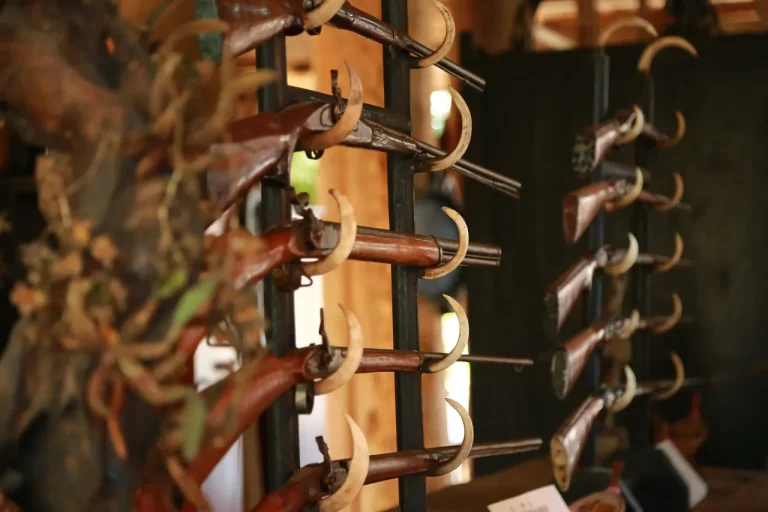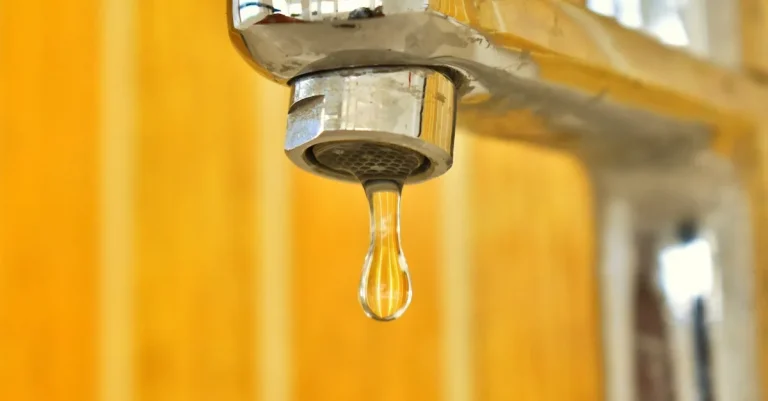Can Minors Drink Alcohol With Parents At Restaurants In Texas? Everything You Need To Know
If you’re a parent dining out with your teen in Texas, you may be wondering if it’s legal to allow them to have a drink with you. With complex liquor laws that vary by state, there is often confusion around drinking ages and when exceptions apply. If you’re looking for a quick answer, here it is: In Texas, it is generally illegal for minors under 21 to consume alcohol in restaurants, even with their parents’ permission. However, some exceptions may apply in certain cases.
In this comprehensive guide, we’ll explain Texas laws regarding underage drinking with parents at restaurants. You’ll learn the legal drinking age, exceptions that allow teens to drink, restaurant policies, tips for staying compliant, and consequences for violations.
Texas Legal Drinking Age is 21
In the state of Texas, the legal drinking age is 21 years old. This age restriction applies to all public establishments, including restaurants. It is important to note that this law is strictly enforced to ensure the safety and well-being of minors.
The minimum legal drinking age in Texas is 21 years old – this applies to all public establishments including restaurants.
Under Texas law, individuals under the age of 21 are not allowed to purchase, possess, or consume alcoholic beverages in public establishments, including restaurants. This law is in place to protect minors from the potential risks and dangers associated with alcohol consumption.
Minors under 21 cannot legally purchase, possess, or consume alcoholic beverages except in very limited circumstances.
There are only a few exceptions to this rule. For example, minors can legally consume alcoholic beverages if they are in the presence of their parent or legal guardian and have their permission. However, it is important to note that this exception only applies to private, non-alcohol-selling premises, such as a private residence.
Public establishments, including restaurants, are still prohibited from serving alcohol to minors.
It is crucial for parents and guardians to understand the legal implications of allowing their underage children to consume alcohol. Not only is it illegal and potentially dangerous, but it can also have long-term consequences for both the minor and the adult responsible.
For more information on the legal drinking age and regulations in Texas, you can visit the official website of the Texas Alcoholic Beverage Commission at https://www.tabc.texas.gov/.
Limited Exceptions for Underage Drinking
Texas has a few exceptions where parents can provide alcohol to their minor children in private, non-commercial settings.
While Texas law generally prohibits minors from consuming alcohol, there are limited exceptions in which parents can provide alcohol to their own children. These exceptions are typically limited to private, non-commercial settings such as a family gathering or a parent’s home.
The intention behind these exceptions is to allow parents to educate their children about responsible alcohol consumption in a controlled environment.
It’s important to note that even in these private settings, parents are still responsible for ensuring their children’s safety and well-being. This means that parents should exercise caution and moderation when allowing their children to consume alcohol, if they choose to do so.
It is also highly recommended for parents to discuss the potential risks and consequences of alcohol consumption with their children beforehand.
According to the Texas Alcoholic Beverage Commission (TABC), parents can legally provide alcohol to their minor children as long as they are present and actively supervising the consumption. However, it is crucial to understand that this exception does not extend to public places, including restaurants with liquor licenses and commercial alcohol sales.
However, these do not generally apply to restaurants with liquor licenses and commercial alcohol sales.
When it comes to restaurants with liquor licenses and commercial alcohol sales, the exceptions for underage drinking with parental consent do not apply. In other words, minors are generally not allowed to consume alcohol in these establishments, even if their parents are present.
This is because restaurants with liquor licenses are subject to strict regulations and oversight by the TABC. These regulations are in place to ensure the responsible service and consumption of alcohol, as well as the safety of all patrons, including minors.
Allowing underage drinking in these establishments could potentially lead to legal issues and jeopardize the establishment’s liquor license.
It’s important for parents and minors to be aware of these restrictions and to comply with the law. Minors who are caught consuming alcohol in a restaurant without proper authorization may face legal consequences, as well as potential penalties for the establishment.
To learn more about the specific laws and regulations regarding alcohol consumption in Texas, you can visit the official website of the Texas Alcoholic Beverage Commission at https://www.tabc.texas.gov/.
Restaurant Policies Often Prohibit Serving Minors
When it comes to minors consuming alcohol at restaurants, most establishments have strict policies in place that prohibit servers from providing alcoholic beverages to patrons under the age of 21, even if they have parental approval.
This is due to various reasons, including legal obligations, safety concerns, and liability issues.
Most restaurants prohibit servers from providing alcohol to patrons under 21, even with parental approval.
While some parents may believe that they can allow their underage children to have a drink with them at a restaurant, it is important to understand that this is generally not allowed. The legal drinking age in Texas, as well as in most states in the United States, is 21.
Therefore, most restaurants adhere to this law and have strict policies in place that prohibit their servers from serving alcohol to anyone under 21, regardless of parental approval.
This policy is in place to ensure compliance with the law and to protect both the restaurant and the underage individual from potential legal consequences. Violating these policies can result in serious penalties for the restaurant, including fines, loss of liquor license, and even legal action.
Their liquor licenses and liability insurance may forbid serving minors alcohol.
In addition to legal obligations, restaurants also have their liquor licenses and liability insurance to consider. These licenses and insurance policies often come with specific terms and conditions that prohibit the serving of alcohol to minors.
This is because serving alcohol to underage individuals can increase the risk of accidents, injuries, and potential lawsuits.
By enforcing strict policies against serving minors, restaurants can minimize their liability and ensure the safety of their patrons. It is important to note that these policies are not meant to discriminate against minors or their parents, but rather to comply with legal and insurance requirements.
If you have any questions about the policies regarding minors consuming alcohol at a specific restaurant, it is always best to reach out to the establishment directly or consult their website for more information.
Tips for Dining Out with Minors
Don’t allow underage children to drink alcohol in restaurants, regardless of consent.
It is important to note that in Texas, it is illegal for minors to consume alcohol, regardless of parental consent, in any public place including restaurants. The legal drinking age in Texas is 21, and minors caught drinking alcohol can face serious consequences.
As a responsible parent, it is crucial to uphold the law and set a good example for your children by not allowing them to drink alcohol at restaurants.
Order mocktails, sodas, or other non-alcoholic beverages for minors to enjoy.
While minors cannot consume alcohol, that doesn’t mean they can’t enjoy a special drink while dining out. Many restaurants offer a variety of mocktails, sodas, or other non-alcoholic beverages that are just as fun and refreshing.
These drinks can make the dining experience enjoyable for children and give them a sense of inclusion without compromising their safety or breaking any laws.
If unsure of a restaurant’s policy, discreetly ask your server before allowing any consumption.
If you are unsure about a restaurant’s policy regarding minors and alcohol consumption, it is always a good idea to discreetly ask your server before making any decisions. They can provide you with accurate information on the establishment’s rules and regulations, ensuring that you and your family stay within the legal boundaries.
Additionally, some restaurants may have specific policies in place to accommodate families with minors, so it’s always best to check beforehand.
Consequences for Violations
Restaurants face fines, suspension of liquor licenses, and civil liability for serving minors.
Restaurants in Texas that serve alcohol to minors can face serious consequences. First and foremost, they can be fined for violating the law. The fines can vary depending on the severity of the violation and whether it is a first-time offense or a repeat offense.
Additionally, restaurants may have their liquor licenses suspended or even revoked, impacting their ability to serve alcohol to all customers, not just minors.
In addition to fines and license suspensions, restaurants can also face civil liability for serving alcohol to minors. If a minor who was served alcohol at a restaurant causes harm to themselves or others, the restaurant can be held responsible for any resulting damages.
This can include medical expenses, property damage, and even compensation for pain and suffering.
It is important for restaurants to take the necessary steps to prevent the service of alcohol to minors. This includes properly training their staff to check identification and enforce the law, as well as implementing strict policies and procedures to ensure compliance.
Parents may face criminal charges for providing alcohol to minors.
While there is an exception in Texas law that allows parents to provide alcohol to their own children, this does not extend to other minors. Parents who provide alcohol to minors who are not their own children can face criminal charges.
The penalties for providing alcohol to minors can range from fines to probation, and even jail time, depending on the circumstances. It is important for parents to understand the legal implications of providing alcohol to minors and to make responsible decisions when it comes to their children and alcohol.
Minors can also be charged with underage drinking offenses.
It’s not just the restaurants and parents who can face consequences for underage drinking. Minors themselves can also be charged with underage drinking offenses in Texas.
If a minor is caught consuming alcohol or in possession of alcohol, they can be charged with a Class C misdemeanor. This can result in fines, community service, and mandatory alcohol education programs.
Repeat offenses can lead to more severe penalties, including driver’s license suspension and even time in a juvenile detention facility.
It is important for minors to understand the legal risks and potential consequences of underage drinking. Education and open communication between parents, schools, and communities are crucial in preventing underage drinking and promoting responsible behavior.
Conclusion
In conclusion, Texas law prohibits minors under 21 from purchasing or consuming alcoholic beverages in restaurants, even with their parents’ approval. While limited exceptions allow parents to provide alcohol to their children in private settings, these do not apply to public businesses. To avoid hefty fines and penalties, Texas restaurants and families should refrain from allowing underage drinking on their premises.








